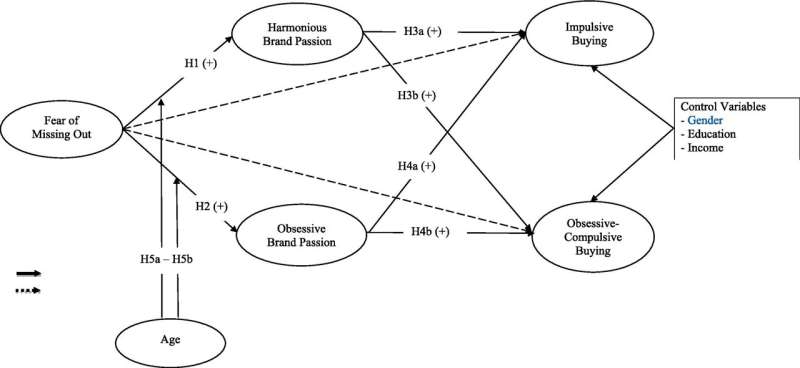A new study reveals the troubling link between the fear of missing out (FOMO) and obsessive brand passion, leading to harmful compulsive buying habits, especially among younger consumers. The research highlights the need for brands to adopt more ethical marketing strategies that foster healthy, harmonious brand passion rather than fueling compulsive spending.

The Lure of Limited-Time Offers and Trending Experiences
Have you ever found yourself frantically scrolling through social media, desperate to secure tickets to the latest sold-out concert or snag a must-have product before it’s gone forever? You’re not alone. A new study published in the Journal of Business Research investigates how the fear of missing out (FOMO) and intense brand passion are driving consumers towards compulsive buying behaviors, often leading to stress, debt, and even anxiety.
Researchers from the University of Portsmouth surveyed 511 consumers and found that FOMO is a key trigger, but what happens next depends on how people channel their brand passion. “Our study reveals that while the fear of missing out can drive strong connections with brands, it also has the potential to fuel harmful spending habits, especially among younger consumers,” said Yuksel Ekinci, Professor of Marketing and Sales at the University of Portsmouth. Platforms like Instagram and TikTok make it easier for brands to create a sense of urgency through flash sales, limited-time offers, and idealized customer experiences, all of which contribute to the FOMO frenzy.
Obsessive Brand Passion: A Double-Edged Sword
The study reveals that obsessive brand passion, fueled by FOMO, is a strong predictor of compulsive buying. This is particularly true for younger consumers, who often feel more social pressure to keep up with trends and experiences shared online. Take the recent frenzy surrounding tickets for Taylor Swift’s and Beyoncé’s 2023 tours, where fans were scrambling to secure tickets, motivated by FOMO and amplified by viral content showcasing the outfits and setlists.
Nearly half of millennials admit to taking on debt to “keep up” with their peers, and this pressure is often driven by FOMO, which pushes consumers to buy things they might not need, simply to fit in or not feel left out. “It’s crucial that brands acknowledge their role in shaping consumer behavior and adopt more ethical approaches that encourage healthy, harmonious passion rather than obsessive purchasing,” said Ekinci.
Fostering Healthy Brand Passion: A Responsibility for Marketers
The study highlights that for marketers, understanding how to responsibly engage with consumers driven by FOMO and passion is key. By fostering harmonious brand passion, companies can promote healthier buying habits, allowing customers to enjoy their purchases without the stress of regret or debt. However, when brands encourage obsessive passion (as seen with fast fashion or instant services), they must do so carefully, particularly when targeting younger audiences.
Some ethical marketing tips suggested by the study include: being transparent about the availability of limited-time offers, avoiding the use of scarcity tactics to create a false sense of urgency, and focusing on building long-term, sustainable relationships with consumers rather than short-term sales. This research urges brand owners to be more accountable and balance their marketing strategies to encourage consumers to enjoy their favorite brands in a healthy, fulfilling way. This not only improves the lives of customers but also builds stronger, long-term brand loyalty.
